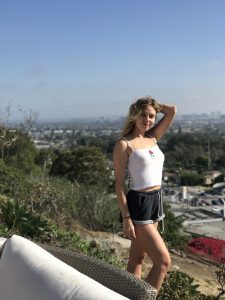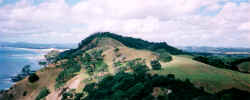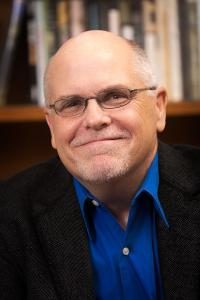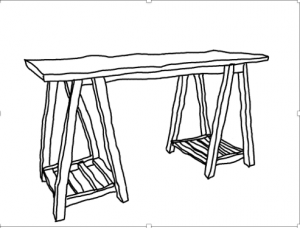Live Music
 The white rose is for remembrance, the death of a child. Lilies, chrysanthemums for sorrow. It could be a bouquet, a basket, an altar covered in flowers. But I can’t see it from here. The surprise of the lie blanketing.
The white rose is for remembrance, the death of a child. Lilies, chrysanthemums for sorrow. It could be a bouquet, a basket, an altar covered in flowers. But I can’t see it from here. The surprise of the lie blanketing.
I thought it was only live music in churches that I couldn’t stand. Since that day in church with the flowers. The Sunday after my son died, and the flowers were for him. My surprise when the minister said my father’s nephew had died. Instead of his grandson. As if I were not my son’s mother. Reduced to a cousin. Invisible. My uncle’s family had kept it a secret, where Tommy came from. Even now, after he’d died. Even three thousand miles away. The surprise, and then my disappearance. Empty dress in a pew. Everyone rose and sang.
In between there was a moment for the congregation to acknowledge my “cousin’s” (son’s) death. Even if it was just the moment/breath between the minister saying, “these flowers are for him” and “let us sing.” Before we rise. I don’t know if the hymn was for my son, in his memory, or in recognition of his loss.
I don’t even know for sure if I cried as they sang, but I remember having to push everything down. Later, in my gray Corolla, switching the stations on Orlando radio, the Christian music songs—church songs—would come on. I’d turn the dial, find a different song. But all those songs were for my son who we lied about in church. Even there, the disguise. In the car I was undisguised. The music all for him, and I am his mother.
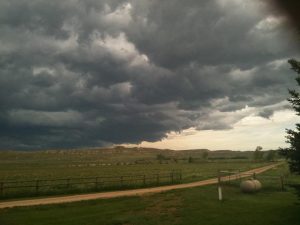
ucross, wy, may 2012
At the Occidental Hotel in Buffalo, Wyoming, tonight there is live bluegrass, folk. I’m not even sure what bluegrass is, a kind of country music, cheerful. The last time I almost heard live music was with my son’s adoptive parents, my aunt and uncle. November 2009, an Irish pub in Falmouth, and they were so happy. My aunt especially pleased there would be Irish songs, and everyone would sing along. I was petrified—knew I couldn’t sing anymore. That place of being able to sing was too far down, too buried. To sing aloud would leave me ridiculously vulnerable. When I’d think of those people rising beside me, singing in church, it was as if they’d all knifed themselves open, throat to belly. Chests open like cupboards, dark crested, each slick heart a little cake on a shelf. All believed they were loved. Even the memory almost unbearable. Their trust made them children. Innocent. Foolish. I would never be a child like that again.
For a while, I’ve been turning to stone. The woman in the Vegas airport bathroom telling me that life is short. Have fun, she said. And I’d been surprised at the idea, that it could still be allowed. That everyone isn’t boarded up. In Falmouth, when I’d visited my son’s parents, I’d been so relieved when the Irish band hadn’t shown up. We left without singing, my aunt disappointed.
I don’t know what would have happened if they started singing around me, my son’s parents. Years of departing my body yet still hauling it around. Maybe my lips moved that Sunday in the Florida church after my son died. I did that sometimes, pretended to sing.
Calamity Jane drove freight wagons on the Bozeman Trail, stayed at the Occidental. It’s near the Bozeman at the foot of the Bighorn Mountains. In 1887, she began writing letters to her four-year-old daughter Janey, who she’d given away to her friend Jim in New York. Calamity had paid him for all the expense of raising her daughter. In 1903, after years of alcoholism and depression, her beauty gone, she
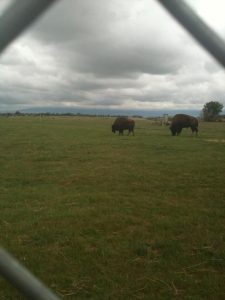
buffalo, sheridan, wy, may 2012
boarded a train for South Dakota. Calamity drinking a lot, going blind, dying. The same age as me. The train conductor “carried her off the train and to a cabin.” After she died, they found a packet of letters, all the letters that she’d written to her daughter and never sent. April 1902: All I have left are these little pictures of you . . .
Moyra Davey, the photographer and filmmaker who made Les Goddesses, said she likes live music. Her room down the hall from mine in a house on the Wyoming ranch where I’ve kindly been invited to spend a month. I once rode in a van from Orlando to Tampa to hear Neil Young live. We traveled in driving rain to get there. I ate bran muffins with too much honey, sat high up in the front seat of the van. Sugar made me dizzier and dizzier as we drove toward Tampa. Rain so hard, in sheets, my boyfriend had to just stop the van on a street in St. Petersburg. Out my streaming passenger window, a fancy hotel glistened. Gold glow, quiet. Like an underwater castle. The hotel off-season and affordable. Claw tub, nineteenth-century wallpaper—tiny flowers, that old rose pink. My boyfriend like a servant who would do anything.
The next day in the sun, I saw a statue of Jesus with a missing arm and went in a quiet church with no people. Was it the first time that I’d been in a church since that Sunday in disguise against my will? If I had a will? So unvoiced, just the way I was. Still a surprise to be that invisible. In St. Petersburg, I didn’t hold my breath. I was alone, I could breathe. Look around. Sat there and breathed a chant of plain music with the air. Dearly beloved, it was white, and no other person entered. All that quiet sewing stitched across the gap.
In Les Goddesses, Moyra Davey narrates a story about Mary Wollstonecraft: “Five months after her first suicide attempt, on confirmation that Imlay (Gilbert Imlay, her daughter’s father) had a lover, Mary jumped from a bridge in rain-soaked clothing, to hasten her descent. She was saved by a boatman and briefly consoled by Imlay. But MW was lucky to find a friend in the person of William Godwin, a sage man who, according to MW biographer Lyndall Gordon, counseled: ‘A disappointed woman should try to construct happiness out of a set of materials within her reach.’”
A disappointed woman should try to construct happiness out of a set of materials within her reach. I had been in Rome, NY, not Italy. A town where all the work had left. Darkness came early on all the big old houses, built when things were brighter. I wasn’t betrayed by M. with another woman. I don’t even know you’re here. I can’t even see you, he said as I walked to his right in the dim house.
After I’d left him, I felt the desire for him lift, like the desire for a drink. Can’t you see he’s like the bottle? Terri asked. The bottle—a time pre-dating mine, 1950s. Like someone not an alcoholic describing addiction. But I could see him tall like a bottle, my extremes of happiness and despair.
Before the desire lifted, I kept wanting to walk to his house. Even though it was over a thousand miles, twenty-four hours door to door in a car.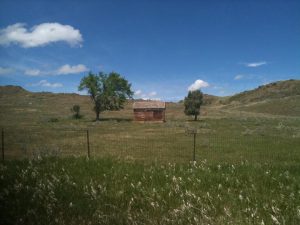 As if my soul kept making a break for him. Found itself caught inside my body. But then the desire was gone. All that was left was disappointment. During those long-distance, phone years, after I’d left him and come back to Orlando, I sat in one spot and didn’t want to move. Freezing in place. Like those women who turn to stone or salt, I turned into a person who sat and read and didn’t want to move. Once it got a little dark, I’d walk around the lake, but I didn’t want anyone to see me. The dark helped me hide.
As if my soul kept making a break for him. Found itself caught inside my body. But then the desire was gone. All that was left was disappointment. During those long-distance, phone years, after I’d left him and come back to Orlando, I sat in one spot and didn’t want to move. Freezing in place. Like those women who turn to stone or salt, I turned into a person who sat and read and didn’t want to move. Once it got a little dark, I’d walk around the lake, but I didn’t want anyone to see me. The dark helped me hide.
I really hadn’t wanted anyone to know I was back in Orlando. When I’d left for New York, for marriage with M, I’d walked around the lake for what I thought was one last time. And I sang. Out loud. By myself. I thought, who cares, I’ll never be here again. I think I sang “Any Major Dude,” Steely Dan, or maybe something else happy, something goodbye to this place of sadness and invisibility, the closed houses. Goodbye to hearing that a friend who lived on the lake said he felt sorry for me walking alone all the time.
A disappointed woman should try to construct happiness out of a set of materials within her reach. Okay, okay.
Guillermo Kuitca’s theater painting, Plano del Teatro Colón could be a spine, with all the white bones. One October in Florida, when I nervously asked Guillermo a question, he stood. Held his hand to my shoulder as if to both balance and comfort. His theaters are seen from the stage. When I worked for the opera, sometimes I’d stand on the stage before a performance, look out at the empty seats, waiting. Dizzy, as if I might fly. Or transform.
After the lights dimmed, Janean and I would leave the high seats to get on the floor, somehow her darkness made me invisible. I didn’t like the first opera I’d seen years earlier with Frank and Nikki. But after I was hired, they did Faust again.
Backstage the little boy who played the part of the dead baby recognized me. He left the curtain. Came toward me before he came back from the
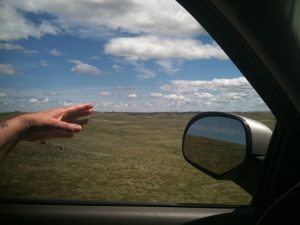
ucross, WY, May 2012
dead. After the performance one night, an old man thought I was Marguerite. He complimented my singing when I hadn’t sung. Marguerite corn silk beautiful, unhinged, everything lost. Then she sang as if climbing the ladder of my body, rungs flooded. Heaven is in the balcony. Night after night, I watch her son come down in white. The sheet to show he’s a ghost, but really it’s that he shines. As if her song—not sheets of rain, but rolling waves, white caps that rise until there’s nothing else—calls him back to her.
That first time I’d seen Faust, I’d gone with Frank and Nikki. At his house on Hillcrest, Frank had shown me the room at the top of stairs, and I’d wondered how did he get the body down? His partner, Patrick, had died up there. Then Nikki died from AIDS too. Her sisters came to Orlando, made a circle around me in the health food store where I worked. I was always surprised that her beauty went so unremarked upon, really unseen or mis-seen, a coworker casting some unkind remark as Nikki went out the door, and I’d thought can you really not see her? Her red hair cut short and spiky like a crown, small-featured as a little girl. Tiny. A high voice. Stomach swollen.
Kuitca’s theater painting could be the image the dead leave on cloth burning their way out, cloudy phosphorescence of fish in dark water. Or it could be a place to land with space for everyone numbered in a red sea. Nikki left us in the balcony, saying, I can’t be this far away from the music. Short like Janean, her red hair a small fire moving down the aisle toward the stage.
So sick by then she looked pregnant. And though I’d only listened to Frank talk about Nikki coming over Sundays to watch the opera at the Met on his TV. Heard how she’d fall backwards on his couch from the music. Had only rung up her groceries and gone with her that one night to the theater. After she’d spent all day sewing her black dress. Her hair glued in little arrows like a broken crown, and we got caught in a storm, shoes rainy. After she died, when her sisters came into the store looking for food, I said to them, I knew her. They circled me then, and the sisters said Nikki had been swimming. She’d gotten tired and had to lie down. In Boston, I told Frank, who had left Florida, that Nikki had died. His cats slept under the blankets with me on the floor. Each named when his lover was still alive, Patrick asleep at the top of the stairs the night we all went to the theater.
In the Santa Cruz mountains, a hummingbird will fly over my head in the near dark. L sends me an essay: Consider for a moment those hummingbirds who did not open their eyes again today . . . a brilliant music stilled.
Note: “Consider for a moment those hummingbirds . . .” from Brian Doyle’s essay, “Joyas Voladoras,” The American Scholar.
Kelle Groom is a poet and memoirist. Her memoir, I Wore the Ocean in the Shape of a Girl(Simon & Schuster), is a Barnes & Noble Discover Great New Writers selection, New York Times Book Review Editor’s Choice, a Library Journal Best Memoir, Oprah O Magazine selection, and Oxford American Editor’s Pick. She is the author of four poetry collections, including the just published Spill (Anhinga Press). Her work has appeared in AGNI, American Poetry Review, Best American Poetry, The New Yorker, New York Times, Ploughshares, and Poetry. An NEA Fellow in Prose, Groom is on the faculty of the low-residency MFA Program at Sierra Nevada College, Lake Tahoe and Director of the Summer Workshops & Collaborative Residencies at the Fine Arts Work Center in Provincetown. She has recently completed her second nonfiction manuscript,Black Maps: Essays on Home.
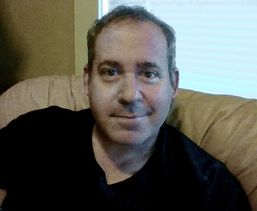 The emergency room doctor clamped down on his right wrist to steel his trembling hand. I shifted my gaze from the confluence of foot and hand to her; she flatly shook her head, a rare, bewildering emptiness. Was this a call for help? An assessment of the absurdity of the moment? An instruction to keep my often-too-careless mouth shut? I watched her face for some clue, but her eyes slammed shut; she was then somewhere else. Once he controlled his turbulent hands, he commenced picking flesh out of the wound on her foot.
The emergency room doctor clamped down on his right wrist to steel his trembling hand. I shifted my gaze from the confluence of foot and hand to her; she flatly shook her head, a rare, bewildering emptiness. Was this a call for help? An assessment of the absurdity of the moment? An instruction to keep my often-too-careless mouth shut? I watched her face for some clue, but her eyes slammed shut; she was then somewhere else. Once he controlled his turbulent hands, he commenced picking flesh out of the wound on her foot.

